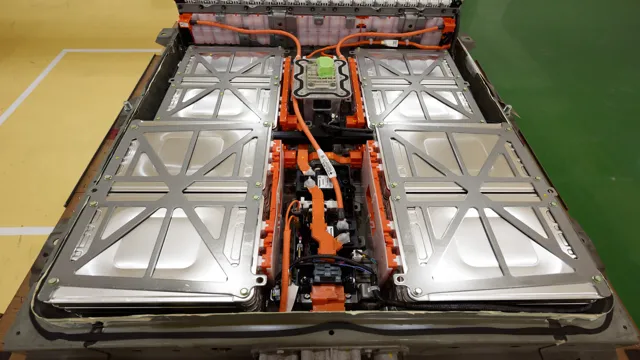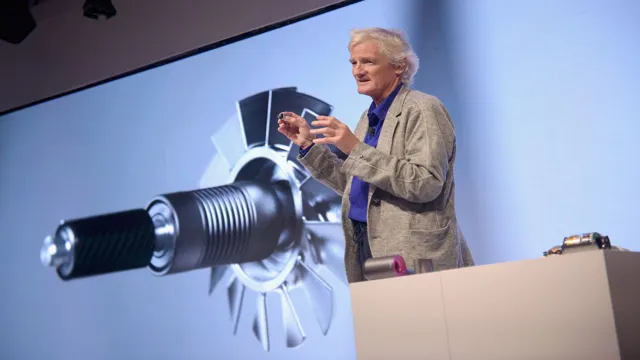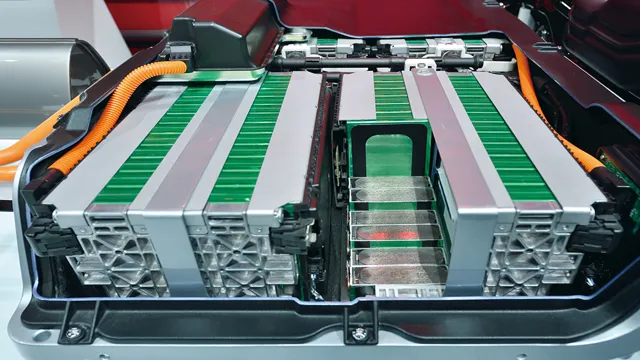Revolutionizing the Road: Top Electric Car Battery Features You Need to Know!
Electric cars have been the talk of the town for a while now. With concerns about the environment on the rise, there has been a paradigm shift towards more environmentally-friendly vehicles. One of the significant features that differentiate these cars from their gasoline-led counterparts is the battery technology they use.
Electric car battery technology has come a long way, and nowadays, the latest models boast impressive features that can cover long distances and minimize charging times. But what exactly are these features? Let’s dive in and take a closer look at some of the most notable ones that make electric car batteries stand out.
Longevity and Lifespan
When it comes to electric car battery features, one of the most important factors to consider is longevity and lifespan. After all, nobody wants to invest in a new electric vehicle, only to have the battery die out prematurely. Fortunately, many modern electric car batteries offer impressive lifespans, with some even lasting up to 500,000 miles or more! This is due in part to the use of high-quality materials and advanced manufacturing techniques that help to extend the life of the battery.
Additionally, many electric vehicle manufacturers offer warranties on their batteries, which can give drivers added peace of mind knowing that they’ll be covered in the event of any unexpected issues. So if you’re in the market for a new electric car, be sure to pay close attention to the battery features and choose a model that offers the longevity and lifespan you need to get the most out of your investment.
Average lifespan of electric car batteries
Electric car batteries have come a long way in terms of longevity and lifespan. While some worries about the batteries’ longevity have deterred potential electric car buyers, studies show that these concerns may be unfounded. The average lifespan of an electric car battery is approximately 8 years or 100,000 miles, with some models exceeding this expectation.
However, the lifespan of an electric car battery depends heavily on its usage and maintenance. Factors such as how often the battery is discharged, charged, and recharged; the outside temperature; and the frequency of charging all play a significant role in determining the battery’s lifespan. Additionally, proper maintenance and usage can ensure the battery’s longevity, such as avoiding quick charging sessions and keeping the battery between 20-80 percent charge capacity.
Ultimately, longevity and lifespan are significant considerations, but with proper care and handling, an electric car battery can last for many years and provide a cost-effective and environmentally friendly mode of transportation.

Factors that affect battery longevity
Longevity and Lifespan When it comes to battery life, there are a number of factors that can affect how long your battery lasts. These factors can include things like the type of battery you have, how often you use your device, and how you manage your battery’s energy usage. One of the biggest factors that can affect battery life is battery aging.
Over time, all batteries become less efficient, and this can lead to a decrease in overall battery life. Other factors that can negatively impact battery life include extreme temperatures, overcharging, and leaving your battery completely drained for long periods of time. On the other hand, proper battery care, like keeping your battery at a reasonable temperature and not overcharging it, can help prolong the life of your battery.
By taking simple steps to properly care for your battery, you can help ensure that it will last as long as possible.
Charge Time and Capacity
When it comes to electric car battery features, charge time and capacity are essential considerations. Charge time refers to the length of time needed to fully charge the battery, which can vary depending on the type of charger used and the size of the battery. Electric car batteries can have different capacities, denoting the amount of energy they can store and how far the car can travel on a single charge.
When purchasing an electric car, it is important to consider the balance between charge time and capacity to ensure that the battery meets your driving needs. Keep in mind that the higher the capacity of the battery, the longer it will take to charge fully. It’s also worth considering the availability of charging stations in your area and how often you’ll need to charge your vehicle when making your decision.
Ultimately, the charge time and capacity of an electric car battery are key features to consider and can greatly impact the vehicle’s usability and convenience.
Charge times for different EV battery sizes
Electric vehicles (EVs) have different battery sizes, and the charging time varies depending on the battery capacity. The larger the battery size, the longer it takes to charge. For example, a 60 kWh battery takes about
5 hours to charge with a 7 kW charging station, whereas a 100 kWh battery takes about 12 hours to charge under the same conditions. It’s essential to consider the battery size when planning a long trip or using public charging stations, as you might need to plan for extended charging times. However, some fast-charging stations can charge EVs with large batteries, such as a 350 kW station that can charge a 100 kWh battery in 45 minutes.
Understanding your EV battery size and its charging capabilities is crucial to ensure a seamless and enjoyable driving experience.
Factors that affect charging time
When it comes to charging your devices, there are several factors that can impact the amount of time it takes to power up. One of the biggest factors is the capacity of the battery you are charging. Simply put, larger batteries take longer to charge than smaller ones.
For example, a smartphone battery may only have a capacity of around 3000mAh, while a laptop battery could have a capacity of 5000mAh or more. Another key factor is the type of charger you are using. Different chargers have different output rates, which can affect how quickly your device charges.
Additionally, the age and condition of your battery can also play a role in charging time. If your battery is old or damaged, it will likely take longer to charge. Overall, it’s important to be aware of these factors and adjust your charging behavior accordingly, to ensure that your devices are powered up and ready to go when you need them.
Battery capacity and range
When it comes to electric vehicles, one of the most important factors to consider is battery capacity and range. The larger the battery capacity, the longer the range of the vehicle. However, it’s not just about the size of the battery, but also the efficiency of the charging process.
The charge time and capacity refer to how quickly and how much energy can be stored in the battery. A faster charge time means less time spent waiting at charging stations, while a higher capacity means less frequent charging. Manufacturers are constantly working on improving both of these factors in order to provide better functionality for their vehicles.
With advancements in technology, electric vehicles are becoming more and more feasible for everyday use, but it’s important to consider these aspects when deciding which model to choose for your needs.
Battery Management System
One of the most critical components of an electric car is the battery management system. This feature is crucial for ensuring that the battery remains functioning optimally and effectively. The battery management system helps regulate the charging and discharging of the battery, which helps prolong its lifespan.
It also monitors the temperature and voltage of the battery, preventing it from overheating or overcharging. Additionally, the battery management system assists in predicting potential issues before they occur, allowing drivers to avoid problems on the go. Thus, this feature is crucial for anyone looking to invest in electric vehicles and helps ensure the vehicle has a long-lasting, reliable energy source.
How the battery management system works
A battery management system (BMS) is responsible for regulating and monitoring a battery’s performance to ensure optimal functionality. The BMS constantly monitors voltage levels, temperature, and current flow to prevent potential overcharging or overheating. It can also control energy flow to ensure that each cell is being charged and discharged evenly while extending battery life.
The BMS uses advanced algorithms to determine the state of the battery and the optimal charging and discharging cycles. By managing the battery’s charging cycle, the system also improves safety and reliability. Think of the BMS as the conductor of an orchestra, ensuring that each instrument plays together, producing a harmonious sound.
The BMS does the same by coordinating the battery cells to work together, producing a consistent and reliable supply of power.
Benefits of a good battery management system
A battery management system (BMS) is essential for prolonging the life of batteries and ensuring their optimal performance. A good BMS helps to keep batteries from overcharging, overheating, and over-discharging which can lead to premature wear and lower capacity. Over time, this can cause these batteries to fail or become unsafe, especially in high-risk applications such as in electric vehicles.
A BMS also monitors individual cells, detects potential issues, and balances the charge across the battery pack. With an effective BMS in place, you will save time, money, and avoid the frustration of battery problems. Therefore, it is essential to invest in a good battery management system to ensure that your batteries function optimally and last longer.
Environmental Impact
Electric car battery features play a crucial role in minimizing the environmental impact caused by traditional gasoline-powered vehicles. One of the most significant benefits of electric car batteries is that they do not produce harmful emissions, unlike gasoline engines. This means that electric vehicles are much cleaner to operate, making them an excellent choice for those looking to reduce their carbon footprint.
Additionally, electric car batteries are much more efficient when it comes to energy consumption. This means that they require less energy to power the same distance traveled, leading to a reduction in energy waste, which in turn helps the environment. Moreover, electric car batteries are designed to be more sustainable and environmentally friendly than traditional batteries.
This is achieved by using materials that are easily recyclable and by avoiding using toxic materials in their construction. Overall, electric car battery features have a significant positive impact on the environment, making them an increasingly popular choice for drivers looking for a cleaner and more efficient way to get around.
How electric car batteries affect the environment and disposal
The environmental impact of electric car batteries is a widely discussed topic. The production of electric car batteries releases significantly fewer greenhouse gas emissions into the air than traditional fossil fuel vehicles. However, the manufacturing process still requires resources, including the mining of rare earth metals, which can lead to environmental degradation.
Additionally, the disposal of lithium-ion batteries after their useful life can become problematic, as they contain toxic chemicals that can be harmful to the environment if not properly disposed of. To reduce the environmental impact of electric car batteries, manufacturers are exploring ways to increase battery lifespan and improve recycling methods. By doing so, we can minimize the environmental impact of electric vehicles, making them a more sustainable choice for transportation.
Sustainable production and recycling efforts
Sustainable production and recycling efforts have a significant environmental impact when it comes to reducing waste and minimizing our ecological footprint. By producing goods and services in a more efficient and environmentally friendly way, we can reduce our dependence on natural resources and decrease greenhouse gas emissions. Similarly, recycling helps to prevent valuable materials from being wasted in landfills, conserves raw materials, and reduces energy consumption.
These efforts can also help to combat pollution and improve air and water quality, which is crucial for the health of our planet and all living beings. Furthermore, sustainable production and recycling efforts can also result in cost savings for businesses, as they can reduce waste disposal fees and increase resource efficiency. Overall, the combination of sustainable production and recycling efforts is vital to creating a more sustainable future for ourselves and the planet.
Future Developments
Electric car batteries have come a long way in recent years, and advancements in technology will continue to shape their future development. One of the most exciting features that we can expect in electric car batteries is faster charging times, potentially reducing the time it takes to fully charge a vehicle to mere minutes. Another anticipated development is an increase in energy density, allowing for longer ranges on a single charge.
Additionally, we can expect improvements in battery sustainability with an emphasis on the use of more environmentally friendly materials. Finally, we can anticipate increased integration between batteries and charging infrastructure, making it easier and more convenient for drivers to charge their electric vehicles. As the demand for electric cars continues to grow, so too will the research and development of their battery features, ultimately making them even more efficient and user-friendly.
Advancements in battery technology
Advancements in battery technology have led to significant improvements in the efficiency and lifespan of batteries. However, research continues to push the boundaries of what is possible in battery technology. The focus is on developing batteries that can store more energy, charge faster, and last longer.
One of the most significant developments in battery technology is the move toward solid-state batteries. These batteries use a solid electrolyte instead of a liquid electrolyte, making them safer and more durable. They also have higher energy densities, which means they can store more energy in a smaller and lighter package.
Other areas of research include using new materials such as silicon or sodium, which can enhance battery performance even further. In the near future, we can expect to see these technologies incorporated into next-generation smartphones, electric vehicles, and renewable energy storage systems. Overall, the future of battery technology looks bright, and we can expect to see continued advancements that will revolutionize the way we use and interact with energy.
The potential for solid-state batteries
When it comes to the future developments in battery technology, solid-state batteries have received a lot of attention in recent years. Unlike traditional lithium-ion batteries, solid-state batteries use a solid electrolyte instead of a liquid one, which can offer several advantages such as higher energy density, faster charging times, and improved safety. In addition, solid-state batteries are also more stable and resistant to degradation over time, which means they could last longer and require less maintenance than their conventional counterparts.
While the technology is still in its early stages, there is a lot of potential for new breakthroughs and advancements in the years ahead. As researchers continue to improve the design and materials used in solid-state batteries, we could potentially see these batteries become the go-to choice for powering everything from electric vehicles to mobile devices.
Conclusion
In conclusion, electric car batteries are kind of like the heart of your electric vehicle. They’re what keeps your car going and gives it the energy to get where it needs to be. And just like the heart, you want to make sure your battery is healthy and in top shape.
Lucky for us, modern electric car batteries have some pretty impressive features, like longer ranges, quick charging times, and even the ability to power your home during an outage. So go ahead, give your electric car battery some love, and it’ll give you the power to go the distance!”
FAQs
What are the features of electric car batteries?
Electric car batteries have the capacity to store and deliver energy, use rechargeable technology, and come in various sizes and shapes. They also have the ability to operate at a high energy density, enabling electric cars to travel long distances on a single charge.
How long do electric car batteries last?
The lifespan of electric car batteries depends on various factors, like their type and usage patterns. On average, modern lithium-ion batteries can last between 100,000 and 200,000 miles before they require replacement.
What is the cost of replacing an electric car battery?
The cost of replacing an electric car battery depends on several factors, including the vehicle’s make and model, battery type, and installation costs. On average, electric car battery replacements can cost anywhere from $3,000 to $7,000 or more.
Can electric car batteries be recycled?
Yes, electric car batteries can be recycled, and it’s an essential part of the electric car lifecycle. The process of recycling recovers valuable materials such as cobalt, nickel, and lithium, which can then be used to make new batteries. Many automakers have taken steps to ensure that their electric car batteries are recycled responsibly.






